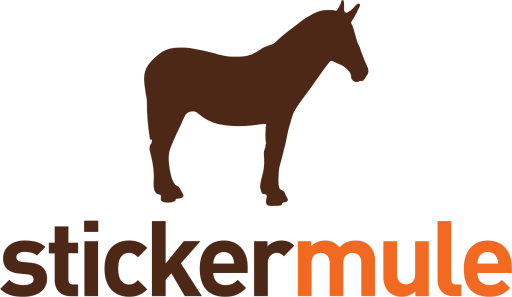labteral / Ernie
Programming Languages
Projects that are alternatives of or similar to Ernie
BERT's best friend.
Installation
Ernie requires Python 3.6 or higher.
pip install ernie
Fine-Tuning
Sentence Classification
from ernie import SentenceClassifier, Models
import pandas as pd
tuples = [("This is a positive example. I'm very happy today.", 1),
("This is a negative sentence. Everything was wrong today at work.", 0)]
df = pd.DataFrame(tuples)
classifier = SentenceClassifier(model_name=Models.BertBaseUncased, max_length=64, labels_no=2)
classifier.load_dataset(df, validation_split=0.2)
classifier.fine_tune(epochs=4, learning_rate=2e-5, training_batch_size=32, validation_batch_size=64)
Prediction
Predict a single text
text = "Oh, that's great!"
# It returns a tuple with the prediction
probabilities = classifier.predict_one(text)
Predict multiple texts
texts = ["Oh, that's great!", "That's really bad"]
# It returns a generator of tuples with the predictions
probabilities = classifier.predict(texts)
Prediction Strategies
If the length in tokens of the texts is greater than the max_length with which the model has been fine-tuned, they will be truncated. To avoid losing information you can use a split strategy and aggregate the predictions in different ways.
Split Strategies
-
SentencesWithoutUrls. The text will be splitted in sentences. -
GroupedSentencesWithoutUrls. The text will be splitted in groups of sentences with a length in tokens similar tomax_length.
Aggregation Strategies
-
Mean: the prediction of the text will be the mean of the predictions of the splits. -
MeanTopFiveBinaryClassification: the mean is computed over the 5 higher predictions only. -
MeanTopTenBinaryClassification: the mean is computed over the 10 higher predictions only. -
MeanTopFifteenBinaryClassification: the mean is computed over the 15 higher predictions only. -
MeanTopTwentyBinaryClassification: the mean is computed over the 20 higher predictions only.
from ernie import SplitStrategies, AggregationStrategies
texts = ["Oh, that's great!", "That's really bad"]
probabilities = classifier.predict(texts,
split_strategy=SplitStrategies.GroupedSentencesWithoutUrls,
aggregation_strategy=AggregationStrategies.Mean)
You can define your custom strategies through AggregationStrategy and SplitStrategy classes.
from ernie import SplitStrategy, AggregationStrategy
my_split_strategy = SplitStrategy(split_patterns: list, remove_patterns: list, remove_too_short_groups: bool, group_splits: bool)
my_aggregation_strategy = AggregationStrategy(method: function, max_items: int, top_items: bool, sorting_class_index: int)
Save and restore a fine-tuned model
Save model
classifier.dump('./model')
Load model
classifier = SentenceClassifier(model_path='./model')
Interrupted Training
Since the execution may break during training (especially if you are using Google Colab), you can opt to secure every new trained epoch, so the training can be resumed without losing all the progress.
classifier = SentenceClassifier(model_name=Models.BertBaseUncased, max_length=64)
classifier.load_dataset(df, validation_split=0.2)
for epoch in range(1, 5):
if epoch == 3:
raise Exception("Forced crash")
classifier.fine_tune(epochs=1)
classifier.dump(f'./my-model/{epoch}')
last_training_epoch = 2
classifier = SentenceClassifier(model_path=f'./my-model/{last_training_epoch}')
classifier.load_dataset(df, validation_split=0.2)
for epoch in range(last_training_epoch + 1, 5):
classifier.fine_tune(epochs=1)
classifier.dump(f'./my-model/{epoch}')
Autosave
Even if you do not explicitly dump the model, it will be autosaved into ./ernie-autosave every time fine_tune is successfully executed.
ernie-autosave/
└── model_family/
└── timestamp/
├── config.json
├── special_tokens_map.json
├── tf_model.h5
├── tokenizer_config.json
└── vocab.txt
You can easily clean the autosaved models by invoking clean_autosave after finishing a session or when starting a new one.
from ernie import clean_autosave
clean_autosave()
Supported Models
You can access some of the official base model names through the Models class. However, you can directly type the HuggingFace's model name such as bert-base-uncased or bert-base-chinese when instantiating a SentenceClassifier.
See all the available models at huggingface.co/models.
BERT
BertBaseUncasedBertBaseCasedBertLargeUncasedBertLargeCased
RoBERTa
RobertaBaseCasedRobertaLargeCased
XLNet
XLNetBaseCasedXLNetLargeCased
DistilBERT
DistilBertBaseUncasedDistilBertBaseMultilingualCased
ALBERT
AlbertBaseCasedAlbertLargeCasedAlbertXLargeCasedAlbertXXLargeCasedAlbertBaseCased2AlbertLargeCased2AlbertXLargeCased2AlbertXXLargeCased2
Additional Info
Accesing the model and tokenizer
You can directly access both the model and tokenizer objects once the classifier has been instantiated:
classifier.model
classifier.tokenizer
Keras model.fit arguments
You can pass Keras arguments of the model.fit method to the classifier.fine_tune method. For example:
classifier.fine_tune(class_weight={0: 0.2, 1: 0.8})






